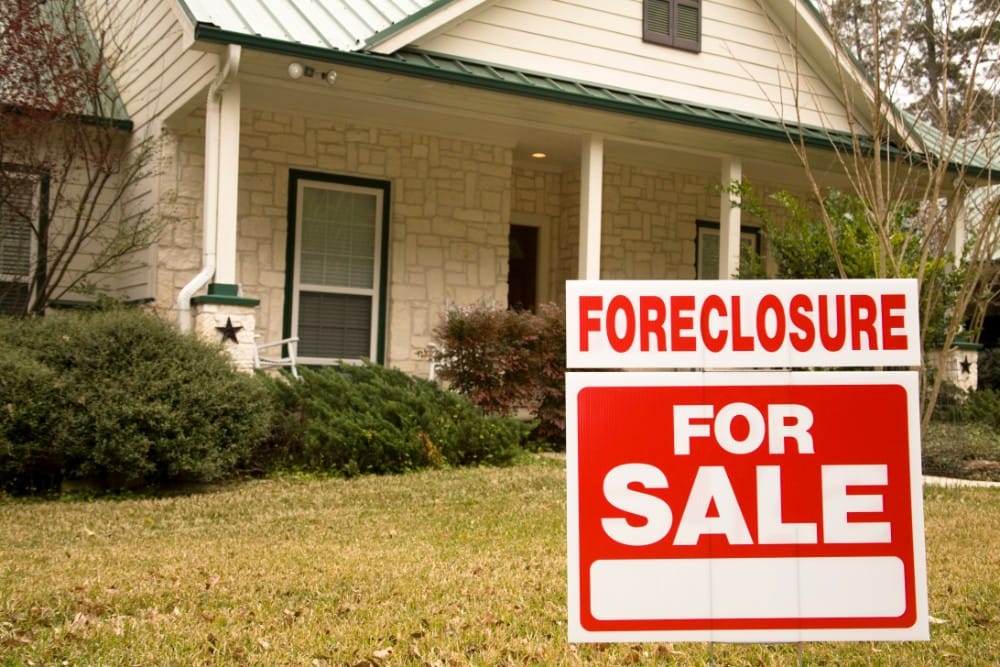
When a property owner fails to pay a contractor for work that has been performed, a foreclosure of a mechanic’s lien can ensure the contractor receives payment.
By placing a lien against a property, the homeowner may be compelled to finish making payment for services already rendered.
The process of filing for a mechanic’s lien and enforcing this lien vary by state, but below we will discuss some of the usual legal processes that take place when attempting to enforce payment.
The Mechanics Lien Foreclosure as a Tool for Payment
Property owners may hire contractors to construct a new home or building or to make home improvements.
Contractors usually provide a contract that states how much they should be paid for the agreed-upon work.
Some states allow contractors, subcontractors, and parties that provided labor, services or materials for a home or construction project to place mechanics liens on the property where contractors are performing work, and this will remain in place until they receive full payment. It is wise, after the payment is delinquent, to start the lien process now, to protect any property rights.
The mechanics lien serves as a hold against the property. If payment is not received, the contractor can then try to foreclose on the lien. This process requires judicial intervention and an order from the court.
How to Pursue a Construction Lien Foreclosure
After the lien is filed, the contractor usually only has a limited amount of time to file a court action to enforce the lien, such as 90 days. This timeline varies by state. If the contractor does not follow up with enforcement, the lien then becomes invalid.
When a lien is foreclosed upon, the lienholder forces the sale of the property so he or she is paid the portion of the proceeds from the sale that he or she is owed.
Even if the property is not sold, a mechanic’s lien places a cloud on the title so that the property is not marketable in case the owner wanted to sell it on the open market.
Valid property liens must be paid off before the property can be sold.
What Are the Steps Involved in a Mechanics Lien Foreclosure?
There are several important legal steps involved in the mechanic’s lien foreclosure process and if you’re not familiar with them, they can look overwhelming.
However, LienItNow makes beginning the construction payment process clear and simple. You complete our online form based on your specific information. Our website generates the form you need, and you review it. You then sign and return the documents.
After the contractor has filed a lien and provided all the necessary notice to others, it must take additional steps to ensure payment and enforcement of the lien.
- The lienholder should send the mechanic’s lien to all possible interested parties in addition to those required to have notice pursuant to state law. Some other parties may help satisfy payment, such as the general contractor on the job.
- The contractor may try to resolve the payment issue with the property owner once the lien is in place.
- At this point, the property owner has an incentive to try to resolve the matter so that the home is not foreclosed upon. If a subcontractor has filed the mechanic’s lien, he or she may try to resolve the matter through the general contractor who may have been obligated to directly pay him or her.
- If the non-payment issue has not been resolved, the contractor may then proceed to send a notice of intent to foreclose to the property owner, general contractor, and other interested parties. This document serves as the final warning that failure to make the final payment will result in the foreclosure upon the mechanic’s lien.
- Once the lien is perfected, the contractor can then enforce perfected lien rights.
It is important that contractors are familiar with their state laws regarding mechanics lien foreclosure actions. Deadlines to enforce a mechanic’s lien claim may vary from state to state. If the lawsuit is not brought by a specific date, the lien can be rendered invalid.
Do You Need a Lawyer for a Lien Foreclosure?
The ramifications of a successful lien filing can be very severe on the property owner, who may ultimately be required to sell their home or property.
Having a lien placed on the property is often enough to spur the resolution of the payment issue that caused the lien to be filed.
Some contractors may feel more comfortable having a lawyer represent them to ensure they meet all the necessary legal requirements. If you are a company, most states require that you be represented by legal counsel to file a foreclosure suit. In any case, it is strongly recommended that an attorney be used for lawsuits, including foreclosure suits.
How Can a Contractor Collect Payment Once a Mechanic’s Lien Has Been Filed?
Sometimes, filing the lien itself is enough to motivate the seller to make the final payment.
If the homeowner does make the payment, the contractor is required to file a release of the lien so that it is no longer imposed on the property and no longer clouds the title to the property.
If the property owner does not make final payment, the contractor may ask the court to force the sale of the property, so the contractor can recuperate the payment he or she should have received.

